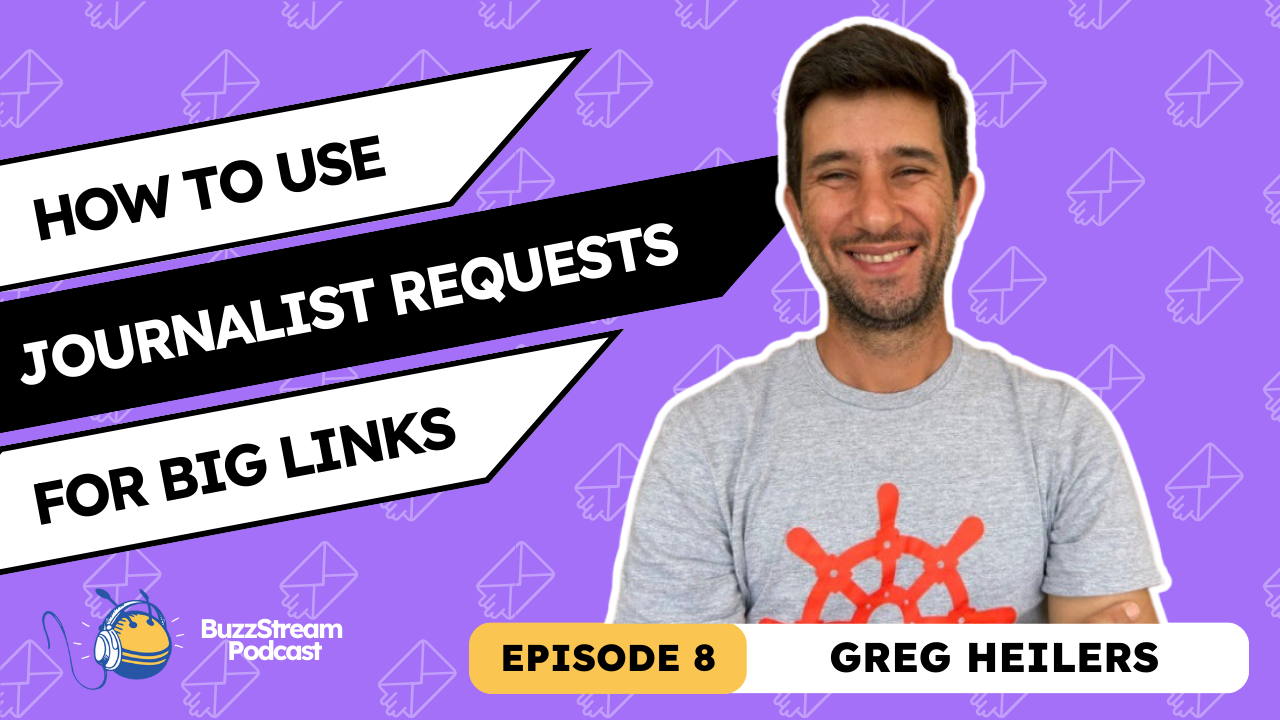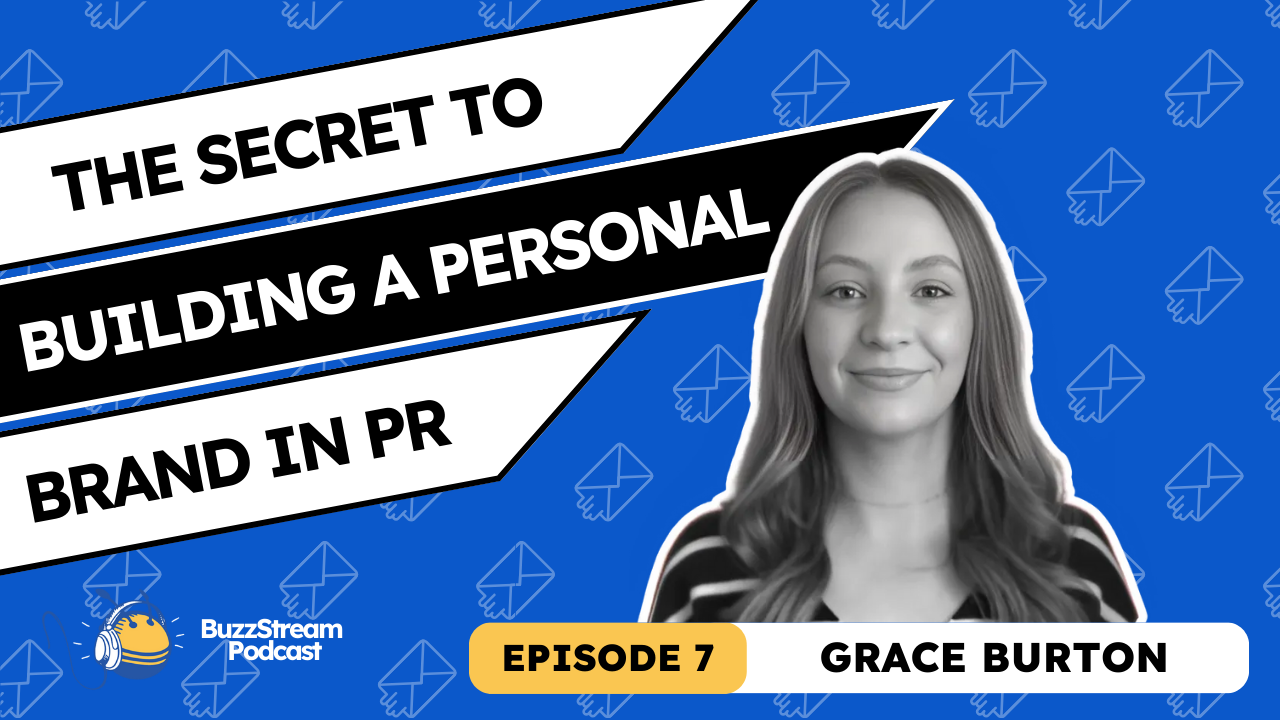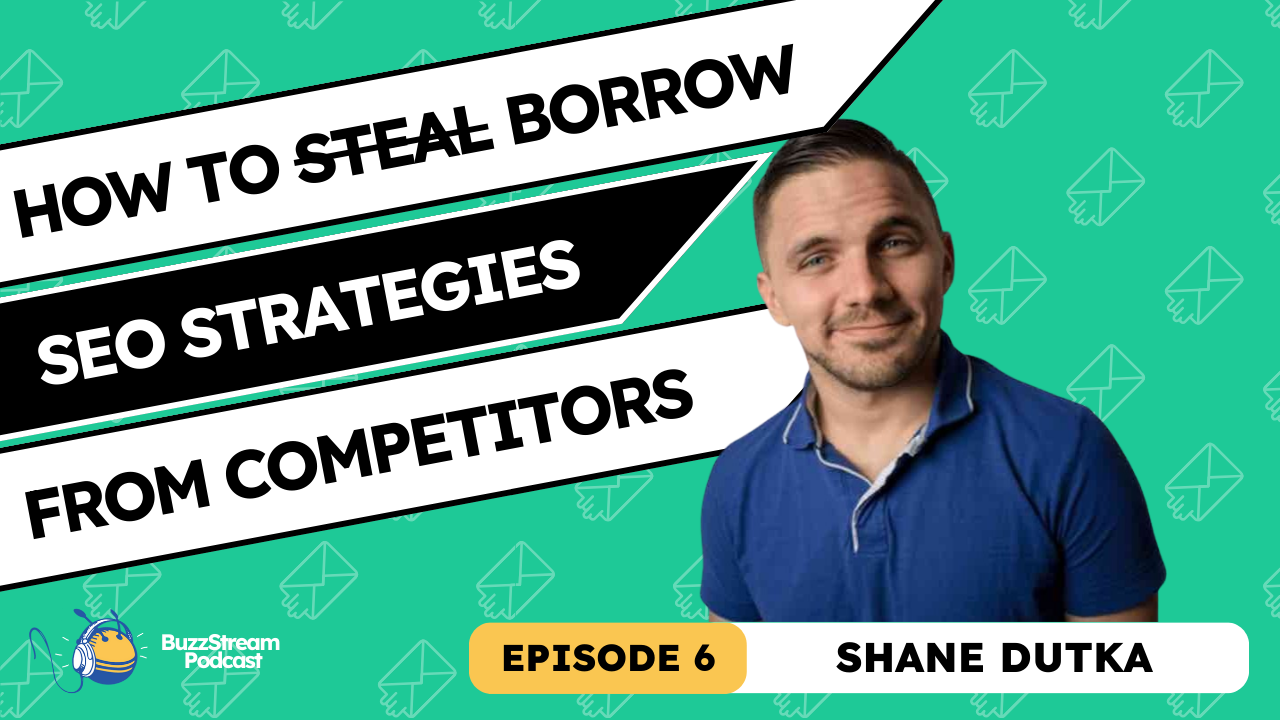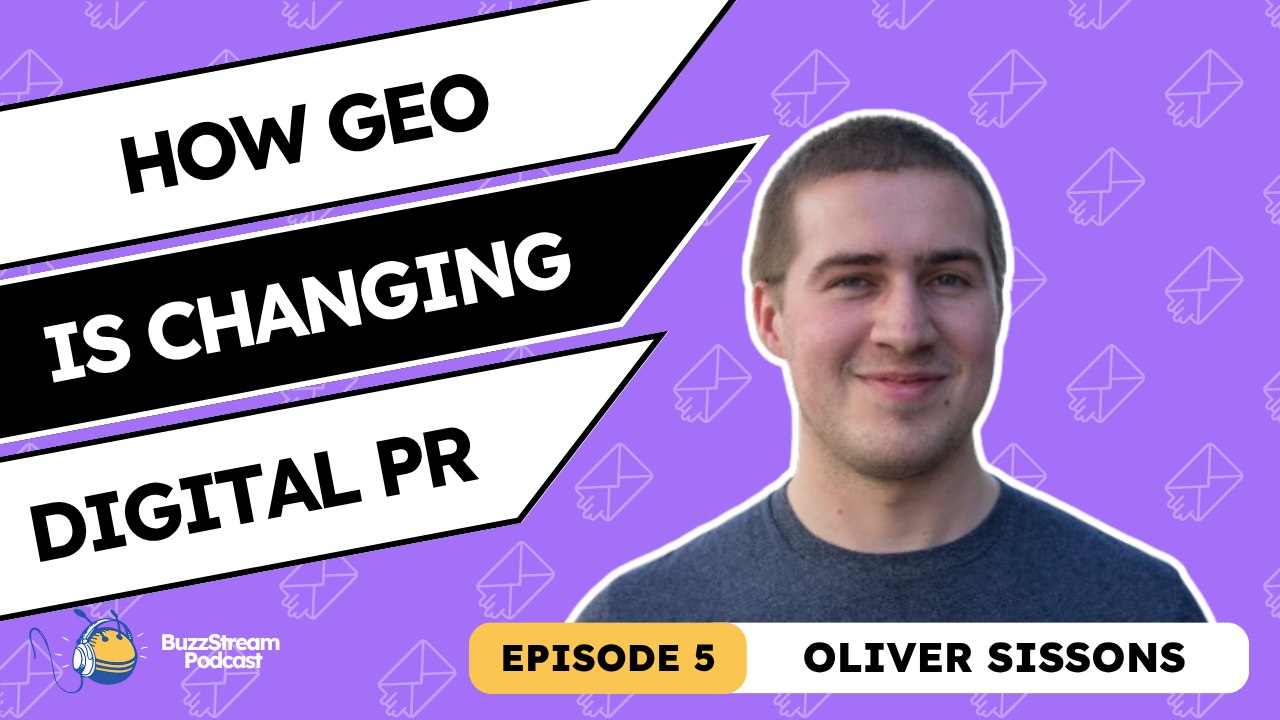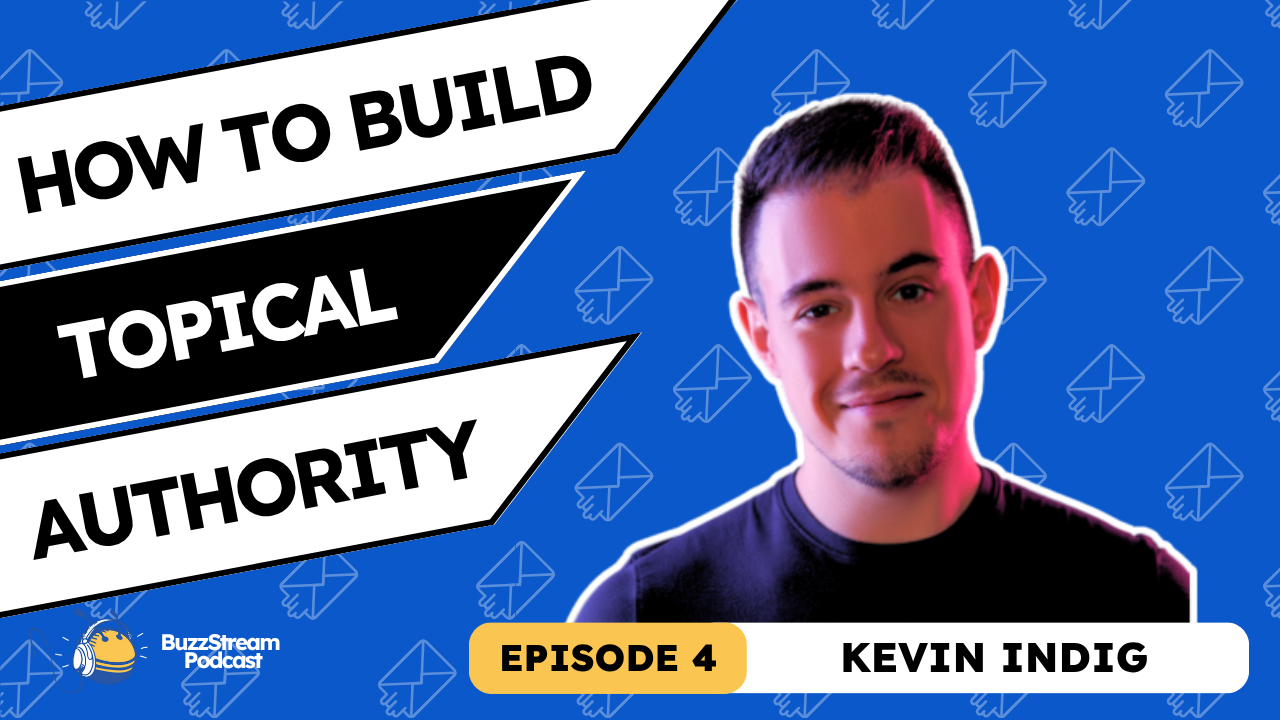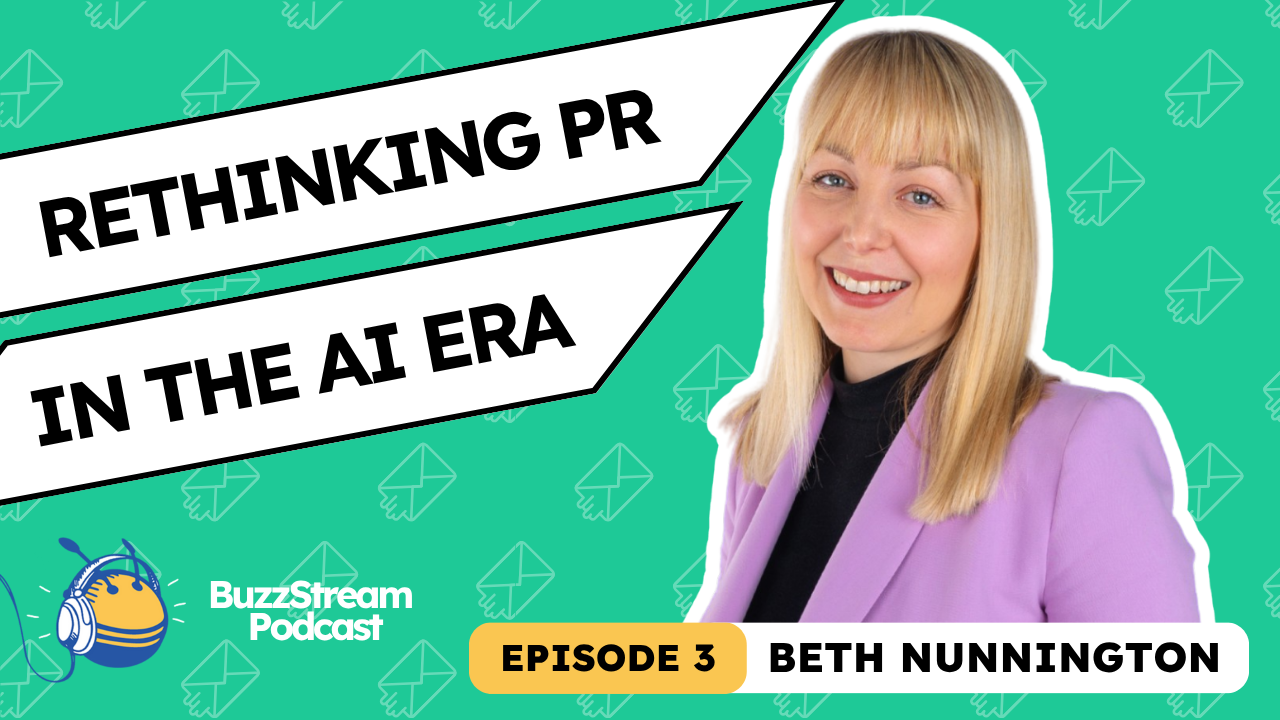Table of Contents
We talk a lot about link building strategies on our blog.
With the Helpful Content algorithm update, AI Overviews, and all of the other changes in the industry, I wanted to reach out to Aaron Anderson, who owns and operates a link building agency, Linkpitch.io, that is deep in the trenches building links every day.
I had the chance to join Aaron’s podcast as a guest a few years back, and what struck me was his unique approach to link building.
It was a client-first, intentional, content-driven approach that drove results.
In our conversation, we discuss strategies that work (or not) and how you should think about your link building in 2024.
So, without further ado, here’s my conversation with Aaron. (Or if you’d like just to check out the takeaways, here they are below:)

Main Takeaways
1. When ideating content to pitch for link building, the content needs to be appealing to those who can actually give you links (not just appealing to your readers.)
2. The free tool or freemium model in SaaS is an effective link building strategy.
3. When pitching, never lie. Stay genuine. If you haven’t read an article, don’t say you did.
4. The better and quicker you can evaluate whether a site is a link farm, the better off you’ll be.
5. It’s generally OK to pitch to sites that accept guest posts or contributors, but avoid sites that advertise “write for us” all over the site (e.g., in the main navigation or footer areas).
6. Broken link building works because it gets you a wide variety of links from different pages and sites.
7. Aim for consistency rather than stressing about the ultimate power of each link.
8. When determining the link strategy, it’s essential to understand the risks and decide which risks are worth taking.
9. Although his agency doesn’t specialize in link exchanges, he remains open to opportunities. He’s seen that sites doing the best job with their SEO are typically the ones most open to link exchanges.
10. For those new to link building, learn about the different types of link building that you can build and try to understand what would work best in your industry.
11. When engaging with a link building agency or consultant, ask: If this is the only way we get links, why aren’t we getting links in other ways?
12. Aaron prefers (and recommends) that you invest in building links to pages that Google is already ranking at least on the first few pages of the SERP.
Below is my slightly edited transcription:
What’s the best content approach you’ve seen lately?
I can’t think of any examples kind of right off the top of my head, but generally the approaches that I prefer are companies that just recognize that content is, where links are going, and that you have to have good content to build backlinks.
Because I get so many people, sometimes they come to us and say, “Hey, just let’s build links for our site. “And it’s okay. “Well, what do we have that people are going to be interested in and that people are going to be willing to link to you?”
And sometimes, if you don’t have that, you’re limiting your options as to how you’re going to be able to build links for your site.
What happens if a client wants links but has no content to pitch?
I just have to be honest with them and say, if you want to go pay for links, that’s one option. That’s not an option I generally do too much with.
And, if you don’t have anything to link to, you can always just pay someone to link to you in some way. But if you want to earn the backlinks, you have to have something valuable to those who can link.
What’s a value to other site owners or those in your industry and how can we have some valuable things? I think there are things that you already have that you could better utilize or sometimes it’s thinking, okay, we could change something temporarily and give something for free for a while, and maybe we’re charging for now so that we can garner links with it or something.
For example, a SAAS product—you know, there’s debate about whether it should be freemium. But from a link-building perspective, I’m like, well, being freemium definitely helps because it’s a free tool, and people love to link to free tools. So, if you have a different approach, would you consider changing to a freemium model?
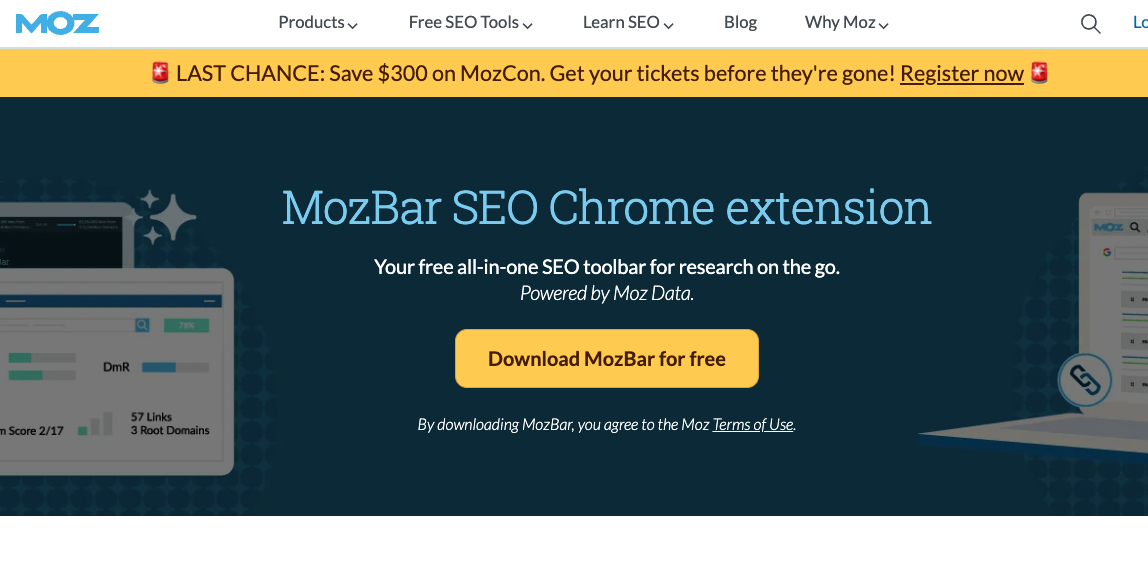
Because that’ll help you on the link-building side. So I think some of it is just thinking, you know, what do you have, and is there something that we could change or adjust so that people could find more value in sharing and talking about your product? What do you have to offer?
Is there a cost-benefit analysis for link building for SaaS companies building a freemium tool?
I’ve never run the numbers like that. I think it’s, it’s hard to quantify sometimes what you’re going to get and, and, and how, Can you predict, you know, how successful it’s going to be? But, you know, at the core, it’s just like, okay, do you have something of value? If you don’t want to do the freemium model, that’s fine, too.
But what types of tools or resources can you build in your niche that could be valuable for other people? If you don’t have anything to pitch to others, then it’s just hard to get started.
What is the link building strategy for a freemium tool?
So I think it really depends on the niche, and a freemium model could make more sense in certain niches than others. But you know, as a free tool, the first thing you kind of look like, let’s just say, an SEO, if you have a free tool.
You know, it’s like, Oh, there’s probably list posts out there that are like, Oh, the best free tools in SEO or the best, you know, whatever. And so you can compile those together and look for those, um, any types of pages that are like resource pages that are for people in your industry.
And if, if your tool is helpful in those situations, those could be good opportunities to, for pitching your, your tool.
We’ll say, Oh, you know, like you have a. A page dedicated to helping people learn SEO and say, Oh, our tool is free. And this certain way, and it’s helpful for doing research. And so that’s a pitch you can do. So you just kind of find, and then you look at other free tools in your space where they getting their backlinks from, and then you can kind of see, Oh, they’re getting that from these list posts or these resource pages or wherever.
And then you can kind of mimic. Okay, let’s find those types of pages because I see these other free tools are getting links in this way.
How would you define content that’s valuable for pitching?
I think sometimes people come to me and they say, “Hey, I have this great piece of content that’s going to work really well.” And I say, you know, “this is a good article and people could be interested in reading it, but the people linking to the article aren’t maybe necessarily the people that are going to be consuming the article.”
So you have to think in terms of link building. Those who can give the links, what are they going to find valuable because that’s really your market?
You can have content targeted for the consumer or your client, but maybe that’s not for a linkable asset. Maybe that content isn’t that interesting for those who can add links.
So you have to think of it in terms of who can give links and what’s valuable to them. And so yeah, maybe it is, maybe there’s some sort of tool or something that would be interesting.
Maybe it’s content, sometimes content like they’ve mentioned this topic, but they haven’t expounded on it. And so like your content can be valuable because it’s expanding on something that’s kind of complicated that they haven’t, they just met briefly mentioned their content, that topic or something. So yeah.
It’s a lot of different things that it could be. Um, but yeah, you have to generally think of it more like the site owner or the person you’re going to outreach. What would, how would they perceive it being valuable?
What do you think about content relevancy in link building?
Yeah, I find the mismatch greatest for B2B industries. If you’re in a B2C industry, there’s a lot more interest in content that appeals to consumers.
And so there’s usually an easier overlap between what drives links and what people are interested in.
But in B2B, it’s a very specific niche, and sometimes, it can be difficult. For example, let’s just say you have a vacation scheduler tool that HR teams use to schedule vacations.
Well, talking about vacation scheduling as a topic is not very interesting, but vacation is something people love to talk about.
So, you can create content that’s very interesting for consumers, whether or not they’ll convert.
The vacation scheduling tool doesn’t necessarily matter because you can get those backlinks by focusing on topics that overlap with consumer interest.
So that’s how I think of it: What, where, and how can you get topics?
These overlap with what people would be interested in, and generally, you can find those somewhere. Um, but in some niches, it can be harder to find things that are more relevant.
What are some of the main reasons that you think link building fails?
I have certain rules that I like to follow. One reason it fails is that you’re not reaching out to the right person.
So many people try to automate this. They’ll download a list from a link building tool like Hunter.io or whatever, and they do all this manually because you really want to be sure that you’re finding and thinking through: Okay, who can add a link on this specific page?
And some people I’ve seen, they say, Oh, you know, we first try to find the editor, and if not, like they, they automate the logic.
And I think that’s really hard to do. So that’s really important. You have to find the right person. Cause if you don’t, you’re going to lose. The second thing is, don’t lose people on the pitch.
If you write too much text, if you don’t get straight to the point you give them fake flattery and they just roll their eyes immediately.
You have to be short straight to the point. Just be very upfront with what you want. Don’t do fake flattery, all these kinds of things. Um, the pitch can lose it for you. Yeah, there are probably many other reasons, but those are a couple of ones that come off the top of my head.
What constitutes fake flattery in link building outreach?
Um, so I don’t do a lot of pitching journalists, uh, very little, so I’m not as experienced in that. But what I constitute fake flattery is saying something that you don’t mean, um, which would be something like, Hey, I loved this article you read, and you haven’t read that article.
It would be like, Hey, I’ve been following you. You don’t follow them. Anything that you say to like, try to like build a connection, but it’s fake because it’s not true.
How specific do you get when personalizing?
If you’re going to reference a post, you don’t need to say that you love the post. You can say like, “Oh, I came across this post. This is something like you just speak specifically to what you’re talking about.”
If you haven’t asked, just get straight to the point, and don’t beat around the bush.
It depends on the type of outreach you’re doing, of course. If you’re doing highly targeted outreach, it might make sense to get into the weeds and define touch points, but just be real about them; don’t make them up.
What does your workflow look like from start to finish for link building campaign?
First, it’s just identifying the strategy that you’re going to pursue. And then, uh, based on that strategy, you’re going to have a specific way of kind of finding the prospects. So, for example, if I find a broken link.
And I’m going to do a broken link campaign. I will use the prospects from that broken link as my prospect list.
So, based on the strategy, you’ll have a prospecting process that you’ll have to follow to get your prospects. Then, you’ll have to manually go through and ensure that all the pages you’re reaching make sense according to that strategy.
And then you’ll make sure you find the right person to reach out to. Sometimes, you know, we’ll find maybe two or three people, depending on what kind of outreach we’re doing who could be the right people to reach out to. Then, um, yeah, and then you put together the template, which can come before, during, or after; it depends.
I guess you usually need to have a template in place while you’re kind of choosing the fields like the, the text fields are going to put in the, um, the pitch and whatever. Yeah, and then just send it out. And manage the email communication.
What do you look at when you’re evaluating a site?
Yeah, everyone might have different criteria. We want to ensure that it’s a legitimate site run by real people and has been active somewhat recently.
But wait, how do you how can you tell if a site is run by real people?
It depends on the type of site you’re looking at, but for example, if you’re looking at a small business website, can you see who’s behind it? You know, sometimes sites, sometimes people try to hide who’s behind it, and sometimes that can be harder to determine if it’s a legitimate site.
So there’s certain, there’s different things that can give you like signals. Metrics can help, you know, are they getting actual traffic? Um, you, you know, you can get a sense for, there’s like from link farms, the farms that sites exist just for the purpose of selling links. There are certain things you look for to exclude, like if they write about everything and you know, there are certain templates It’s just immediately once you’ve looked at them enough.
You’re like, oh, yeah I can just tell that this like looks like a link form. So you gain some of those things over time, But it’s looking okay. Do they cover a specific topic, or do they, cover in-depth that topic where they’re trying to write about everything? If they’re writing about everything, have you ever heard of this site before?
It’s really a lot of it’s about trying to identify if it’s a link farm or not because at the end of the day, link farms are trying to look legitimate. Can you, you know, identify them and exclude them as, Yeah, as quickly as possible?
How do you feel about sites that advertise “write for us”?
Accepting guest posts, even if they have a right for us page, I don’t mind.
If the Write for Us page is linked to from the main navigation, yes, that to me is a big deal.
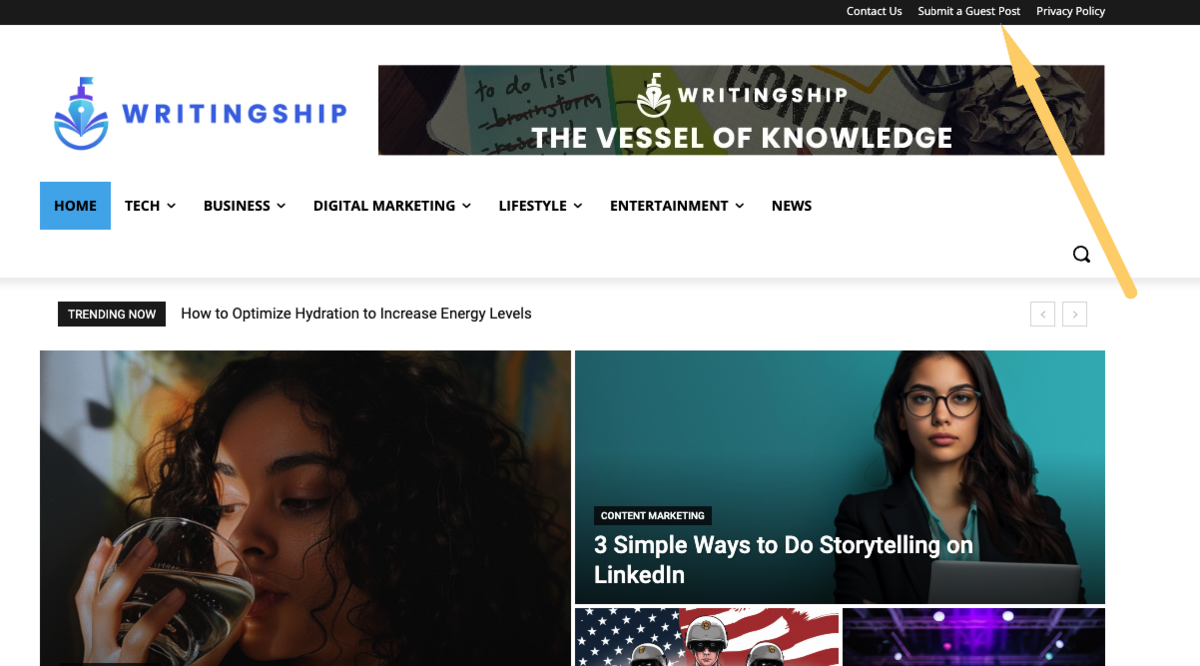
If they’re being very blatant, if it’s like from every page, you see the right for us page, generally speaking, I would say that that’s a bad sign. Uh, but having a contributor page or right for us page isn’t necessarily a negative.
It’s all about how open they are, like pushing it. So yeah, that’s, that’s something I would avoid.
Has Helpful Content changed the way you build links?
Yeah, I think our strategies haven’t changed that much. Yeah. But we haven’t, we don’t do a lot of like guest posting, so we don’t, um, I’ve always been against the idea of Like a lot of guest posting companies or agencies. Um, it’s like, let’s get the lowest quality content that we can have accepted by the target site.
And so if we can get away with writing with AI, if we can get rid of writing with a cheap, for me, I’ve always been like, If the content doesn’t read well enough that I would read it, I don’t want to junk up the internet more. So, I only believe in higher-quality guest posting. So, as a strategy, it’s not one that we generally employ.
So, our strategies, like, we do a lot of old school strategies. Like, like, broken link building. This is like the OG link-building strategy they did in the ’90s. Still works, and we still utilize it. So I like doing things that I think have staying power in terms of strategies. So you don’t have to keep adjusting your approach based on, you know, it’s like we have an approach that works and we get links that, that I think, stand the test of time.
And so based on any updates, you know, I hope I don’t have to keep. Like redoing everything because the links are now being ignored that we were building before.
Are you doing link insertion?
Link insertions are generally used for pay linking. Is that how you use the term?
Vince: I would say just like finding a specific keyword or something on someone’s site and saying, hey, you know, you talk about content marketing strategies, and we have a post here about content marketing strategies. Would you be interested in adding that? It could give your users more context, however you frame it.
These days, a lot of those are paid placements just because that’s how the market has gone. But yeah, I don’t think they necessarily have to be.
Aaron: Yeah. We do some of that. Generally speaking, those tend to have lower conversions or you’re just getting most people say, yeah, this is the price for that.
And the types of campaigns that we run with that, usually it’s when the more specific you can be, it’s not like, Hey, you just mentioned this. It’s like, you mentioned this exact phrase. And we have a topic on this exact phrase and you didn’t like to talk more about it.
So this could be a helpful addition like if you can be really targeted in those campaigns, that’s where I see the best success with it. Yeah, so we do it sometimes but generally speaking you get a lot of paid people wanting money when you run those campaigns in my experience
Does broken link building work?
Well, broken link building is great because you get links from a wide range of pages. So, let’s say we find a broken link, and then we’re just looking at all the pages that are linking to that broken link.
So, some of the pages and links might come from resource pages, and some might come from within content.
I mean, I’ve gotten links from the New York Times and Parade and, you know, like many really great sites, uh, with broken link building. So, and lots of different types of sites. So I like it because you, when you do resource page link building, you’re getting links just from resource pages. When you do like, okay, content, you’re getting links, just in content.
When you’re doing broken link building, you’re getting a wide variety of links and lots of different pages because it’s just how people link to that page. So, that’s one of the things I like about it: it’s very varied.
And does page depth matter?
Like, okay, do links vary based on where they are on a site and how deep they are?
Yeah, there’s definitely a difference in value—just like there’s a difference in value of a link based on how many outgoing links there are on a specific page. But if you really did refine your criteria to no more than this many outgoing links, I mean, you can really drill down and only get links from pages that have traffic.
You’re just going to have such a few prospects; it’s a numbers game. And so the more you narrowly define your criteria, the more likely you are to have to pay for the links that you think are most valuable, find a different approach, or do relationship link building to get those links that you think are most valuable.
So yeah, there’s always a difference in value, and my approach has always been to try to go for consistency rather than stressing about the ultimate power of each individual link. Go for consistency over time.
If you want to go just for the links and get you the most value, you know, that’s probably a relationship.
Link building is going to probably get you the best, highest-quality links, as far as that goes.
What do you mean by relationship link building?
By relationship building I mean link exchanges or, yeah, or knowing people and that can say, oh, Hey, I can, or ABC link exchange, or like, I’m doing guest posting on this.
You’re exchanging something.
It doesn’t necessarily have to be a direct exchange.
What’s your take on link exchanges?
So, my broader take in terms of what strategy should you or shouldn’t use to me? It’s not like, oh, you should or shouldn’t do different strategies.
It’s all about, well, what’s your risk? How do you view risk and link building, and do you understand the risks? And then which ones do you think are worth taking?
And some people, people look at this differently. Some people are like, I don’t want to do anything that’s against Google’s written, uh, TOS and other people are like, I just want to do what works and, you know, Google keeps changing, and I’m just going to do it, you know, so, so what you choose is all based on your risk profile and so however you’re comfortable, like to me, I’m okay with it as long as you just kind of understand the risk.
I do a lot of outreach, um, and you know, when we get clients, we always say, “Oh, are you open to guest posts?” “Are you open to paid links?” Are you open to, link exchanges?”
Those are the three we kind of like want to clarify.
In my experience, the sites that are doing the best job with their SEO, that are like the biggest sites on the internet, are the ones that are the most open to link exchanges.
They’re not interested in your content because they care a lot about their content quality and have really high standards.
They don’t want a random person getting their content, and they’re not interested in getting money for you for a link either.
But they see the value. If you’re a good site and you’re reaching them, they see value in getting backlinks and trading backlinks.
So the sites on the internet that are doing best do link exchanges, and they’re smart about it. They do it with the best sites that they see the most value in. And so that’s when I don’t have a problem with it. Some people have built entire agencies just on link exchanges.
It’s not such a part of what we do. It’s, it’s just like if we’re doing outreach and we come across as opportunities. It fits our criteria, we’ll, we’ll look at them, but you know, just, From my experience, the people that are doing best in SEO, they all seem to be okay and comfortable with it.
Yeah. And like big names that you’d like, oh wow. They do like exchanges?!
Even the back and forth, like if you think of a healthy site. They’re getting a lot of links regularly, maybe hundreds of links, a one-off exchange going to like a priority page that it might be hard to get links to, you know, where you’re getting maybe, or even just a supplement like we’re doing a lot of natural link building where people are choosing their anchor text.
So one off, okay, let’s have some input on the anchor text. Um, you know, those things can make a big difference. It’s not necessarily negating because, okay, maybe just domain to domain, it’s not a big deal, but you’re getting.
You’re linking to my priority page and I’m linking to your priority page and we’re both like really good sites that have a lot of authority, a lot of traffic, like you’re both going to benefit from that.
So yeah, I’ve done a lot of back-and-forth, not like a law, but I’ve done plenty of those where people exchange links directly. It’s just such a small part of your overall linking, and I don’t think most people worry about it from a risk standpoint.
Are you seeking out link exchanges in those cases?
We only do it when we’re doing normal outreach and if someone presents us with the opportunity.
We don’t run link exchange campaigns. I would be nervous as a site owner if I ever saw my site on a list for anything.
Editor note: Here’s an example of a list of sites:

So from a risk perspective, I would not want to be part of like networks or lists where like, you could bank on me always to get a link, you know, so I would be nervous about that.
I think the smart site owners, they’re just, okay, well we get an excellent opportunity from an excellent site. Just doing it when it makes sense. And we were really like controlling it.
But again, it all comes down to your risk assessment, and how you perceive that.
How important is it to diversify your link strategy?
What I always like to try to let clients know is, even so, what we’re doing, you’re hiring me to build backlinks for you, but that shouldn’t be the only way you’re getting backlinks.
You should be getting some links naturally and you should be getting some links based on the quality of your content and stuff like that.
When you’re hiring, you have to think of it more holistically. Okay, how do we get backlinks? Okay, we hire a company for backlinks, but is that the only way we’re getting back? If it is the only way we’re getting backlinks, why aren’t we getting backlinks on other, any other ways?
And why aren’t we getting links naturally or passively? So, I always want to be like a small part of a larger, uh, pie of like how links are coming in.
And if, you know, if I can help clients think, okay, if you built this content and we can get this to rank, okay, then it can start linking, getting links naturally over time.
Cause you want to, you want links coming in various ways.
So, yeah, if you just have one approach and you’re getting one type of backlink and you’re not getting links any other way, yeah, there’s probably some risk associated with that.
Um, but again, it also depends on where the links come from in your industry.
And if that’s where the links come from in your industry, um, and your competitors also have that similar, they’re all getting links in that same way, then. Maybe it doesn’t seem as much of a risk.
How do you approach a new client?
So yeah, one thing is one way to look at is okay? You need something to build links to. And if you don’t have something to build links to, like you get, you have to get some links differently. So sometimes when people come to me and say, “Oh, you don’t have much”, I would suggest HARO-type link building because you’ll get homepage links.
It’ll help you build some of that foundational authority. I want to see how Google responds to your site when you have some initial backlinks. Are they going to start liking your content better? Sometimes, when you have a brand new site, you don’t know anything about it. Does Google like me?
Do they like the content I’m writing or whatever? So, okay, maybe you need to build some foundational, uh, links. So I might say, you know, that’s what I would recommend to start. Build some, just some good homepage links, and get some authority. Then the second way is like, do you build links to pages that aren’t getting traffic already?
So I prefer to build links to pages that rank somewhere. So, for example, you come up with a brand-new website. I say, okay, let’s start building links. And then we built links for six months and still those links never had an impact. Well, because Google wasn’t sending you traffic before we built a bunch of backlinks.
And then, even after all the backlinks, they didn’t send traffic to you. So my approaches. I like to make sure that Google likes your content first. If Google likes your content without backlinks, they will like your content better with backlinks.
But if Google doesn’t like your content currently, like you’re not ranking on page three or four, like you’re not even in the top 100, you’re nowhere.
And I build backlinks to that page that it may do nothing. So I like to get cues first. Like, so that’s the risk when someone’s brand new, they come to me and say, we can build backlinks. But like it may have nothing to do with the backlinks we’re building. It’s just that Google isn’t indexing your content and putting it somewhere in the top 10 pages of Google.
Maybe it doesn’t see it as relevant. Maybe there are technical things going on that you want to fix first. And once you see, okay, we’re on page 5, we’re on page 4, we’re, like, Google likes our content somewhat. Okay, now we build links to it, and now Google likes it better.
To me, that’s a way to de-risk your link building, is to make sure your content is being liked first before you start building links to it.
Do you think Google uses any quality or relevancy metric when looking at a backlink portfolio?
You see some people doing pretty weird things that sometimes seem to work. And if there were some sort of relevancy metric, you would think it would catch those things like sometimes using like expired domains that have no relevance.
NOTE: Since recording on this podcast, Google has started hitting some of these sites practicing expired domain abuse.
And it’s, I think, they said they’ve included in this recent update. Um, but you see some weird things. And so you question, I’ve always been one to try to focus on relevance.
It makes sense, just from a logical perspective, that if you have on this topic and these people write about it, it would benefit.
I’m sure they try. Yeah, I don’t know exactly how well they’re always able to implement that as a criteria. Y
eah, I mean, I get, and the reason I ask that is that, you know, thinking about what you’re saying about a brand new site just starting out and making sure their content is on point first and Google knows their site.
Do you always need content first before starting link building?
Yeah. Is that right? Yeah. I mean, it’s a cart before the horse kind of question, or the chicken or the egg. Do you build links first to build up some of this authority so that your content will rank, or do you, you know, make sure that your content, like Google, likes your content before building a bunch of backlinks?
In my opinion, you should always start with content first. Content is really where you should focus your site.
You should really focus and make sure because Google will find and tell you what it thinks. I mean, and maybe to build some foundational authority.
Build some homepage links and, you know, build some, just like building your social profiles and these kinds of things like these, just to show you, I gotta have some semblance of a brand. And then if you can build some like HARO backlinks to your homepage and build a little bit of authority, you can get some gauge.
I like doing that because I’ve had clients in the past, and they were brand new. Then we’ve built links for a long time, and they were like, maybe it was a cool tool.
I thought it was great, and people liked it, but from an SEO perspective, you know, there were question marks if Google was ever going to rank it for anything.
And then after, after working with them, I’m like, Oh yeah, maybe I should push back in the future because I feel bad if I build backlinks for people like six, 12 months and then I don’t see any traction for them.
So I want them to like, you know, get value from their money and make sure that they’re, And, and I think the best way to do that is generally try to focus on your content first and make sure that Google is liking it and then invest in link building.
And you can do some link building, mostly like the homepage, to build some initial authority. But, um, that’s kind of what I prefer cause it makes me feel less, um, just in terms of managing expectations, too. Like you, you can see, I can see the path of how links can benefit, you know,
Is your podcast Let’s Talk Link Building still going?
Yeah, it’s a bit of an unfortunate end; it may be resurrected at some point, but I had to stop Let’s Talk Link Building after about 30 or 35 episodes.
What are some of your biggest link building takeaways or tips from your podcast?
The biggest thing I really gained from doing the podcast is a much better understanding of link building as an industry, all the different approaches that there are, and how different approaches fit different situations.
Sometimes when clients are like, well, I need links, let me find someone that will give me links.
And they kind of view it like a commodity.
There are lots of different strategies and approaches, and those strategies and approaches may not always fit every situation.
Some types of link building are better in different situations, and not everybody is good at every approach.
And so it’s actually a much bigger industry than people recognize. And they want to commoditize it as they like “ I need a link. Oh, a DR 80. Okay. That’s good. Let me get the link,”
And, and it’s, you know, way more complex than that.
And so, yeah, if you’re looking to do link building, you know, understand a little bit about the different types of link building that you can build with PR, you can build it with guest posting, and try to understand what would work best in your industry and for your site.
I think it’s good to take some time before just jumping in and just saying, I need links, and let me give money to the first person who says they’ll get me links.

 End-to-end outreach workflow
End-to-end outreach workflow



 Check out the BuzzStream Podcast
Check out the BuzzStream Podcast

